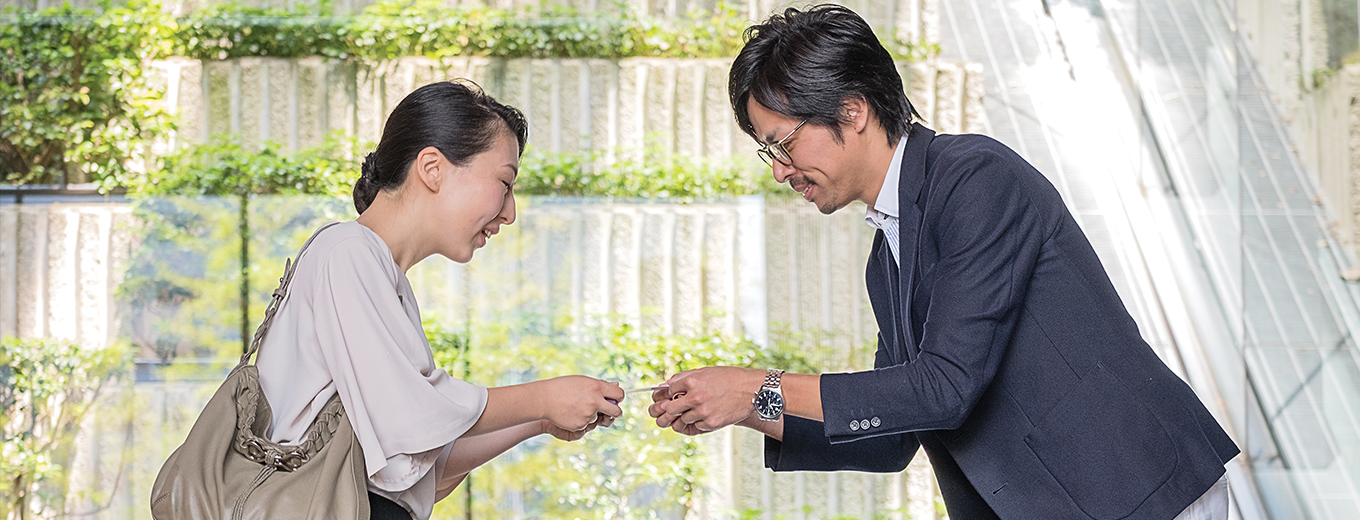The first advice J-Logicom’s Ai Matsuba would give business visitors to Japan is this – get well away from your work and sample the country’s unique sights and culture first-hand. rules of engagement
The first advice J-Logicom’s Ai Matsuba would give business visitors to Japan is this – get well away from your work and sample the country’s unique sights and culture first-hand.
‘Japan is a place where old meets new,’ she says, ‘and you can see innovation and multiculturalism in the same place as history.’
According to Unesco, the country has 19 cultural sites and four natural ones. Matsuba says: ‘It’s a great time to visit our historical buildings and natural, beautiful views, and to enjoy some healthy Japanese food.’ Osaka also has its fair share of what the Japanese call ‘power spots’ – locations or objects that are said to have a strong positive influence on visitors’ luck, health and marriages – Google them and charge yourself up!
Once you’re ready for work, Matsuba recommends you heed some basic rules of business etiquette for Japan. ‘In business, Japanese people are very formal. Sometimes foreigners can appear to be too loud or to be invading personal spaces,’ she says, ‘while the Japanese can be very quiet and prefer not to have physical contact.’
Matsuba says these are cultural traits rather than anything to do with personality. However, it’s probably advisable to rein in any extrovert tendencies, at least at the beginning of your business relationships in Japan.
Overseas business people may appear disrespectful or too informal for their Japanese counterparts, who usually prefer overly polite behaviour, and avoiding, at all costs, the possibility of coming across as rude.
It is also important to remember to perform ojigi – bowing the head or upper part of the body – rather than shaking hands. This is something you can practise in front of your hotel mirror. Also, in business the Japanese exchange business cards using both hands – using one hand is a big no-no.
Wearing business suits with dark, rather than light, bright, colours is generally better received in Japan and, according to Matsuba, helps build trust early on.
Generally, business in Japan may move at an
initial pace that can be frustrating for those not used to the formal
procedures involved. Matsuba recounts one collaborative project with overseas
staff that had many formalities and, accordingly, took a long time to prepare –
so long in fact, that when the company was ready to press on, their foreign
colleagues had forgotten what
the project was (although it was eventually carried
out successfully).
‘Japan is a massive multicultural society,’ says Matsuba. ‘It is one country – made up of very small islands – which is very beautiful, and where people live with respect and organisation.’ She adds: ‘Do not forget to put your mobile phones on silent mode in public places. And be aware that not everybody speaks English – but they will try to help you when you ask something.’
Finally, in Japan all names have meanings – ask people what theirs means, says Matsuba, whose first name, Ai, means ‘love’. ‘It’s a great way to get more friendly with people,’ she says. ‘Welcome to Japan!’
As FIDI Affiliates from different countries and cultures around the world head to Japan for FIDI’s annual conference, there are certain rules they should adhere to if they plan to do business well with industry colleagues. Ai Matsuba, of J-Logicom Corporation, explains local customs
At a glance: 10 things to remember in Japan
- Be polite and not too loud
- Use ojigi – a short bow – don’t shake hands
- Business cards – swap using two hands
- Wait to be asked before sitting
- Wear dark-coloured business clothing
- Be interested
- Keep your distance
- Be reliable – do what you say
- Learn some simple Japanese words
- If you’re not sure – ask

